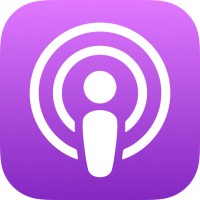

The ads for podcasts with which group broadcasters fill up their stations’ live streams tend to just float past me. My listening circumstances are a little different; sometimes I am fast-forwarding through cached audio and wouldn’t hear them anyway. But if I am focused enough on work to sit through a stopset, I am unlikely to stop and make notes about a new show to listen to at some other time. I’m more likely to find out about new shows from readers (particularly their own).
I have occasionally searched out a podcast as a result of an ad in a streaming stopset, but when I asked Facebook friends, most of them had not, and the respondents were largely broadcasters themselves. When they had, it tended to be as a result of NPR (or the CBC) and sometimes full-length rebroadcasts (e.g., This American Life). Effective crossplugs were usually from N/T outlets, not music radio.
Any discussion of promoting podcasts inevitably brings up the perennial question: “Should we be sending listeners anywhere else?” Then there’s the issue of whether podcasting, having just demonstrated its influence at the highest levels, needs radio’s help, or vice versa. But broadcast radio is still the biggest piece of listening. Even after 15 years, panels on podcasting inevitably turn to the question of being found. Why wouldn’t developing shows want radio’s reach?
It’s surprising to me that the big groups haven’t put more effort into an all-podcast format. At an NAB New York panel on radio and podcasting this fall, representatives from iHeart Media and Audacy weren’t interested in finding an over-the-air home for their shows. Trying to clear podcasts on co-owned News/Talk stations would be a cramdown, they said. (When I reported that, one commenter also pointed out that the language used would also create an issue for over-the-air radio.) Streaming ads are the thing they want, but it does feel as if shows are being promoted into the abyss.
But if radio did want to promote podcasts, how might it do so more effectively?
Should we be selling more than “all your favorite podcasts”? Whichever one you are more inclined to, Call Her Daddy and The Joe Rogan Experience are available on both the iHeartRadio and Audacy apps. So is the less polarizing Crime Junkie. That’s a connection listeners may not make from radio promos’ current, more generic references to podcasting overall. If the goal is to send a listener to a radio app, not YouTube or Spotify, and ensure that their next choice for music is your station, wouldn’t talking about hit shows drive more traffic?
When the goal is to promote developing shows:
Should there be a podcast of the week? Would one developing show, crossplugged over an intro, get more attention than a dozen shows promoted in a stopset?
Could somebody be mining audio for show prep? Are the major groups providing stations with a regular show-prep service offering topical stories and audio that allow morning shows and other hosts to plug a podcast rather than an unrelated site?
Are there other roles for podcast hosts on broadcast radio? As morning show guests? As the voice of “live reads”? With most stations having a lack of in-house voices, is “this is ______ from the ____________ podcast” more compelling for a sponsor than a random testimonial?
Finally, we should not stop discussing the all-podcast radio format. Its detractors have many points — it’s the antithesis of on-demand listening; weekly episodes can’t fill daily slots; why should podcasters care about low-rated broadcast stations? Often the detractors are broadcasters themselves. But with podcasts long established as a younger generation’s talk radio, there will not be a next generation of AM/FM talk radio without them.
The all-podcast format has never had the right combination of content, curation, and distribution. It will more likely find its audience on a national streaming platform than on the handful of smaller AMs or FM rimshot and translator signals devoted to it thus far. Only once it does is it likely to be a valid choice for individual over-the-air signals.
Podcast Radio is thoughtfully curated, but if you want to hear it on a national radio aggregator, your choices are TuneIn or its Beasley/Southwest Florida feed on Audacy. If the big groups don’t want to create an equivalent for their own content, working more closely with Podcast Radio to promote their shows would make more sense.
These are thoughts presented not as a podcasting insider, but as somebody who recognizes effective radio on any client’s behalf. Radio’s own good health depends on its continued ability to generate results. Our own products should get our best efforts.
